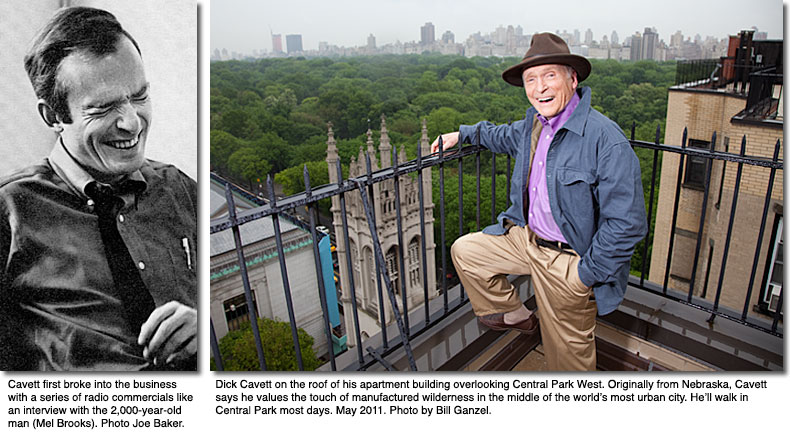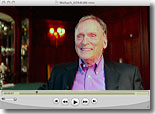Dick Cavett "Does Cavett Have It?"

|
In 1969, Nebraska-native Dick Cavett was in the process of premiering the second version of his talk show, this time on ABC as a summer prime time show. LOOK's headline asked the question, "Does Cavett Have It?" Their answer was, in a word, yes. "He is the brainy one in brown-suede shoes," wrote producer Betty Baer. "He is an enormously literate guy who can pepper his language with suitable quotes from Eng.-lit.-101's dustiest poets to the most recent droppings of Norman Mailer… Like a lot of witty men, he is terribly serious, shy and introverted, yet sensitive enough to worry that he might, on occasion, be boring." Over the years, there have been nine versions of "The Dick Cavett Show," first on ABC during the daytime from March 1968 to January 1969. Before that Cavett worked as an actor, standup comedian and staff writer for the Jack Paar Show, the Merv Griffin Show, and the Tonight Show with another Nebraskan as host, Johnny Carson. After the summer show, ABC picked up Cavett for a late night slot and that show ran from 1970 to 1975. During this iteration, Cavett produced some classic interviews with John Lennon and Yoko Ono, Ray Charles, Groucho Marx, Alfred Hitchcock, Katherine Hepburn, Jane and Henry Fonda, and many, many others. The ABC show was followed by a CBS prime time show, a PBS version that ran from 1977 to 1982, a USA version from 1985 to '86, back on ABC in '86, CNBC from '89 to '96, and on TCM from 2006 on. LOOK wrote, "He complains of never having enough time to read and likens himself to a character in an existentialist story who was so aware of the passage of time that he became paralyzed by the very sound of it whizzing past his ears." Now, 40+ years later, Cavett has been mining his interviews for a New York Times blog and his recent book, Dick Cavett, Talk Show. Cavett is humble when he talks about his observations about the Sixties. He was so busy with show business that "I can't really say that I was a creature in or of the Sixties, but I was there," he says. "Earlier in the 60s, of course, they had so much stuff. Berlin and civil rights. It was not an easy time for the country." |
Cavett did thoughtful programs about civil rights, Vietnam and the violence of the decade. He says – with sardonic humor – "An adequate number of assassinations took place before '70. I did a couple of shows about them. When Bobby Kennedy was shot, I obviously couldn't do the show with Phyllis Diller the next day, or whatever was planned. Nothing against Phyllis… It was stunning, of course. But also, added to the event itself was, 'How do I do a television show today about anything?' And luckily my producer said, 'You've got to do it about that.' Viewers were very, very grateful." The show featured a diverse panel including actress Lauren Becall, writers Jimmie Breslin and Pete Hamill, and Cavett's old philosophy professor Paul Weiss from Yale. "The studio audience was just rapt. They wanted this. They wanted to hear somebody talk about it. And it wasn't the first assassination, nor the last." He says the violence and the threat of violence that the country experienced during the Sixties changed everything. For instance, during the Cuban missile crisis he was glued to the TV and wondered what would happen if the nuclear missiles started raining down. "We were mesmerized watching it on television and thinking, "Now I know what the phrase 'This is It' may mean… "What will it feel like to vaporized? Will you know for an instant, 'Here I go'? The same thing you wonder about suicide or being shot, knowing you're being shot in the next moment." He says a lot of Baby Boomers responded by trying to change the world, but the revolution got sidetracked. "A lot of people [working for a revolution] felt they were doing that and felt that was their mission. But a lot of it, like [Timothy] Leary's – What was his formula? 'Turn on, tune in and drop out.' His pernicious prescription for what young people should do. It didn't do much. It's still a wretched world. We still have plenty of violence. I don't see that anything has been learned. We hideously lost a war… A lot of the idealism of the 60s was acid- and cannabis-tinged to the degree that it was never going to go anywhere anyway. [He laughs.] |






